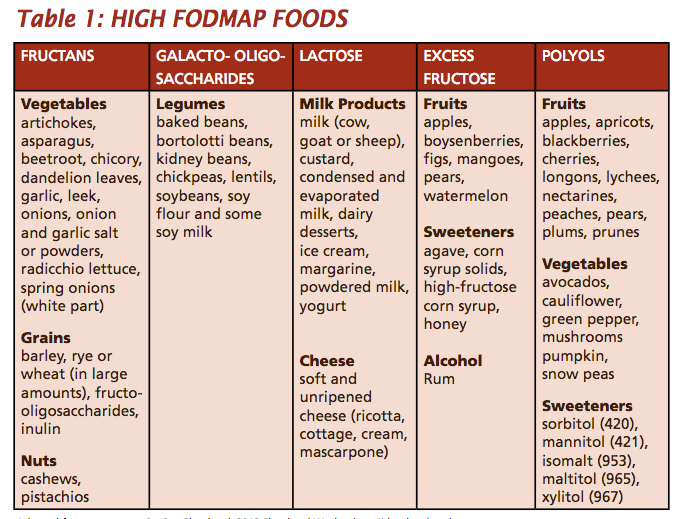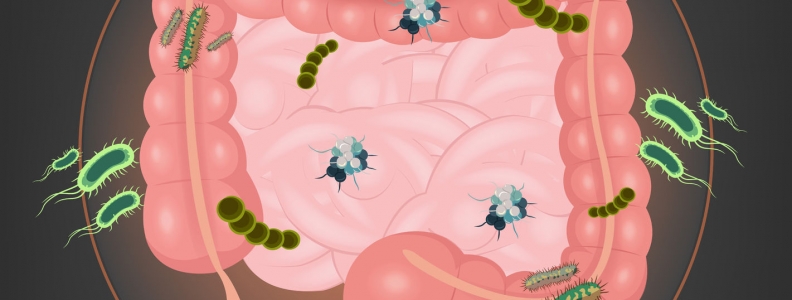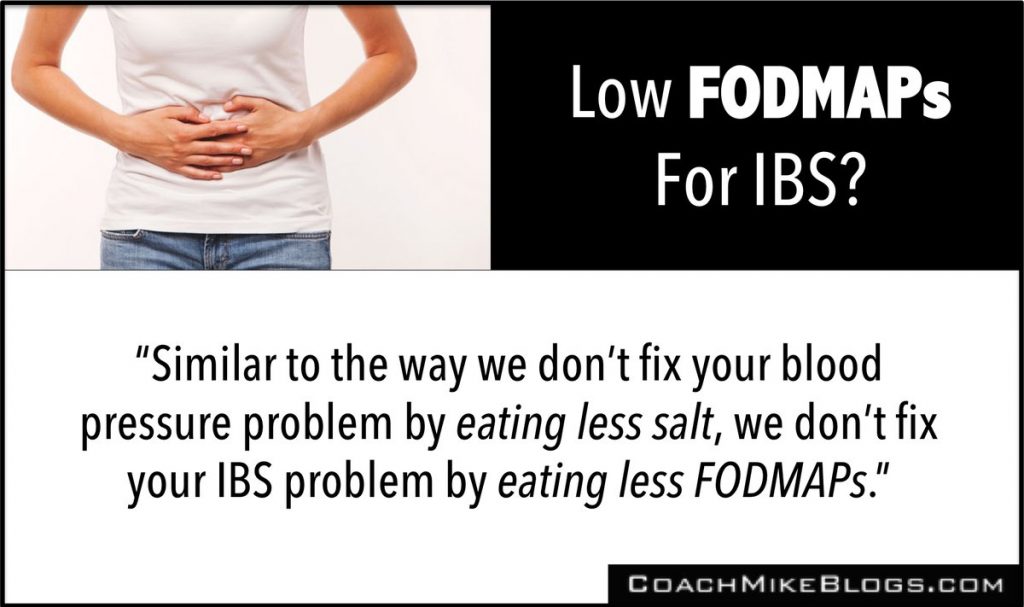The Low FODMAP Diet has grown in popularity as people finally start to realize that optimal health begins in the gut. Some are turning to it because they’ve been struggling with an irritable bowel or gastrointestinal discomfort (bloated, gas, reflux, etc) for years, while others are looking to it because they’ve heard it can improve their brain function, clear up their skin, or fix their chronic fatigue. Since, as we’ve discussed in the past, most (if not all) of these inflammatory conditions are connected to the gut.
Realistically, a FODMAP diet probably can help; as it’s done for a long list of IBS (irritable bowel syndrome) sufferers in the past (1, 2, 3, 4, 5). Largely because it eliminates wheat and other gluten-containing grains, but also because it kicks the lectin-containing legumes to the curb; that along with the gliadin proteins (1, 2), are chronically damaging the gut.
Fermentable Oligosaccharides, Disaccharides, Monosaccharides And Polyols.

Although, the funny thing is, these are a lot of the same foods reduced on a low-carb diet (which also fixes IBS by the way). The only difference being, the Low FODMAP Diet is a little more liberal on the fruit (allowing low or no fructose fruits), while a Low-Carb Diet isn’t dropping the gut-feeding fructooligosaccharides (FOS) and inulin (allowing onions, garlic, artichokes). And oddly, the low FODMAP diet discourages cruciferous vegetables (broccoli, cauliflower) and includes (even encourages) non-gluten containing grains….?

Which makes you wonder what they were thinking here?
Acellular carbohydrates to heal the gut?
And favor these foods over cabbage, broccoli, cauliflower, and onions?
Are they trying to fix the IBS, or temporarily relieve gas?
As last time I checked the good bacteria in our gut (like bifidobacteria and lactobacilli) eats inulin and FOS (1, 2, 3, 4, 5) while the bad bacteria eats sugar…?
Including polySACCHARIDEs = many SUGARS!

The reality is, anyone experiencing IBS has an overgrowth of bad bacteria in their gut (SIBO, candida, etc), and is likely (if not already) on the verge of experiencing intestinal permeability. So, step #1 should be:
Starving the bad bacteria and eliminating inflammation – by cutting off the grain and sugar supply (see Live It NOT Diet!)
Followed closely by:
- Disinfecting the gut – by using plenty of vinegar and coconut oil
- Fixing digestion – by taking the HCL test, eliminating NSAIDs, and fixing your dining habits (eat slow, chew your food, avoid water)
- Repopulating with good bacteria – by supplementing a probiotic and eating fermented foods
- Feeding the good bacteria – by eating PLENTY of low-glycemic prebiotic-rich vegetables with butter (aka butyrate)

Similar to the way we don’t fix your blood pressure problem by eating less salt, we don’t fix your IBS problem by eating less FODMAPs. The reason people with IBS struggle with FODMAPs, is because they have a damaged gut; just like people with high blood pressure struggle with salt because they have the metabolic syndrome.
Eliminating wheat, legumes, and high-fructose fruit is a good place to start, but permitting high-glycemic starches and encouraging other grains is an odd place to finish. Especially for someone that definitely has IBS, probably has SIBO, and maybe has a leaky gut.
Stay Lean!
Coach Mike
RELATED ARTICLES:
Beyond Live It NOT Diet! - Test Your Digestion
Fermented Foods - The Better (& Cheaper) Probiotic
Apple Cider Vinegar Each Day Keeps The Doctor Away
